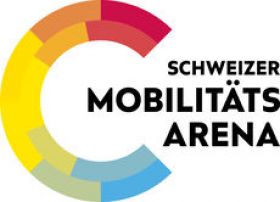Autonomous vehicles tested in The Villages, Fla
Voyage Auto, a California-based company, is now test-driving its second-generation car, two Chrysler Pacifica Hybrid minivans, in The Village of Virginia Trace, Florida.
The company is receiving feedback from four residents chosen as test passengers, according to an article by Amber Hair, a staff writer with The Villages Daily Sun.
Why test these vehicles in The Villages? There are a few major benefits to testing here, according to Timothy Carone, an associate teaching professor at the University of Notre Dame, who specializes in data science, automation and artificial intelligence. The weather is better for testing and the population can benefit from having non-driving transportation options. Road conditions in The Villages make it easier for developers to program self-driving cars. Slower speeds mean the car can stop almost instantly if the car is about to crash. Thus the chances of injury are much lower.
To make sure the vehicle is as safe as possible during rollout, Voyage built in three levels of safety. While the car is being guided by its sensors and computers, there will be a human behind the wheel at all times during the testing phase to make sure a person can assume control in case the car runs into a situation it doesn’t recognize.
The second level of safety is a second person in the front passenger seat, making sure the human in the driver seat is paying attention to the road, even when they aren’t driving. These two levels of safety will become redundant and phased out as the company expands its presence, but Voyage general manager Dean Bushey says there will always be a way for a human to take control in situations the car doesn’t recognize.
The third level of safety is operating only on pre-mapped routes. By sticking to those routes, the sensors can focus less on the surroundings like houses and signs which won’t change, and more on the surroundings that will, like golf carts and people.
The cars are programed to obey speed limits, yield to other cars and emergency vehicles, stop for road signs when required, and recognize pedestrians nearby.
17. April 2019
AUTOMAT VOR ORT: KONFERENZ AUTOMATICAR 2020
Am 16. September findet der Fachkongress AUTOMATICAR zum 2. Mal änlässlich der ...
»weiterlesenAUTOMAT vor Ort: Konferenz AUTOMATICAR
Am 12. April fand das erste Mal die von der Mobilitätsakademie des TCS organisierte ...
»weiterlesenAutomat vor Ort: EPTA Conference 2017
EPTA Conference 2017 „Shaping the Future of Mobility“ Luzern, Verkehrshaus, Mittwoch, 8. ...
»weiterlesenAuto-mat vor Ort: Automatische Shuttlebusse tpf
Am 22. September war www.auto-mat.ch live vor Ort, als die ersten beiden automatischen ...
»weiterlesen


